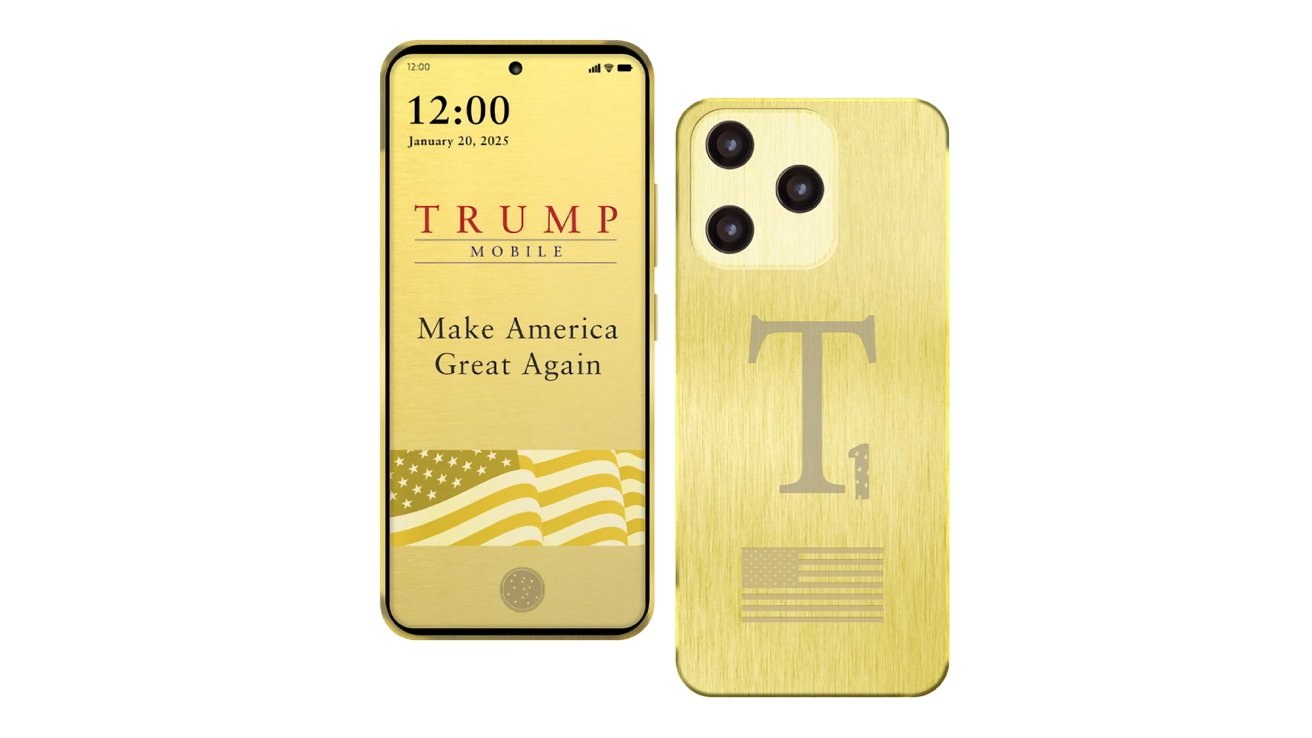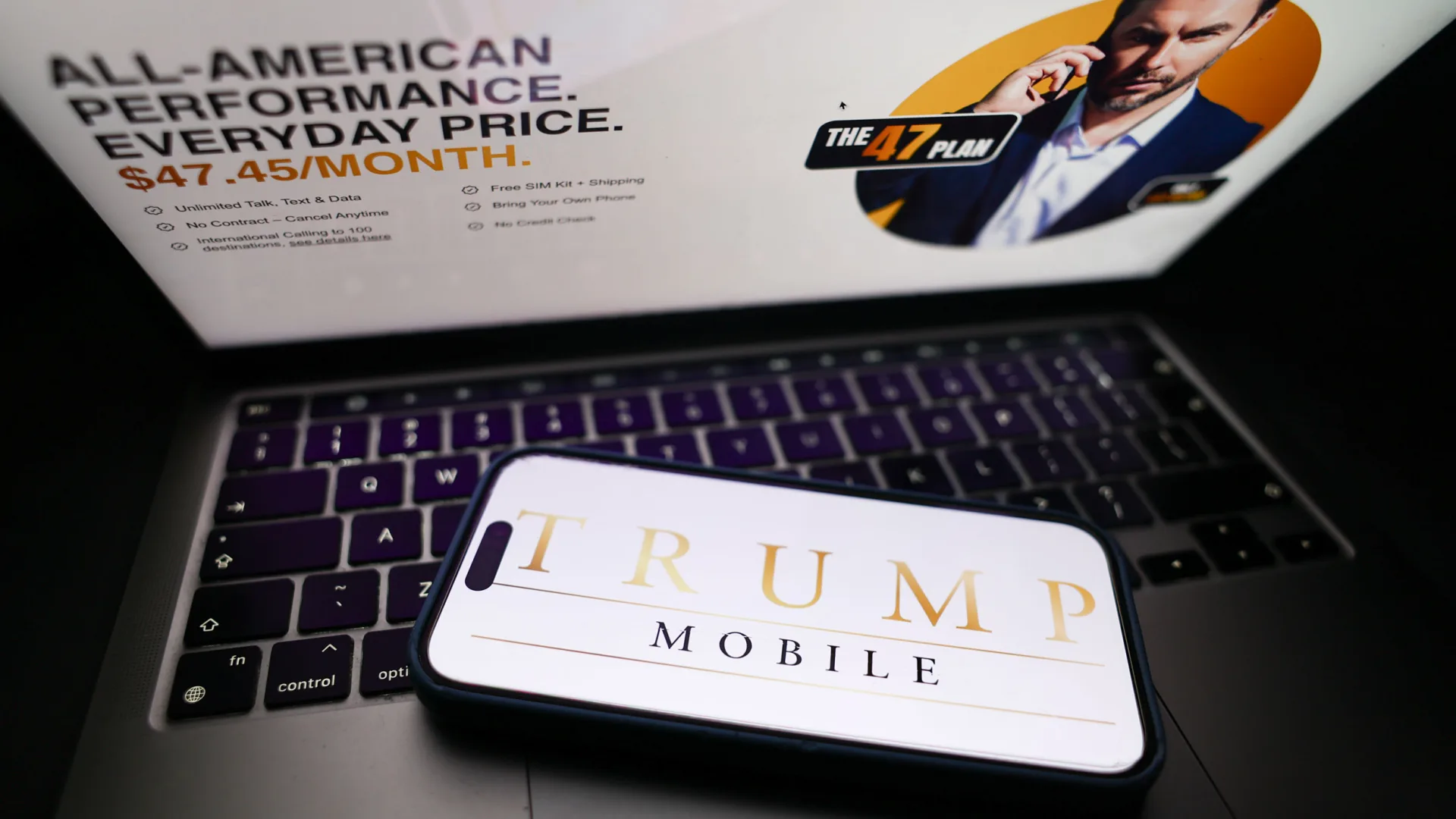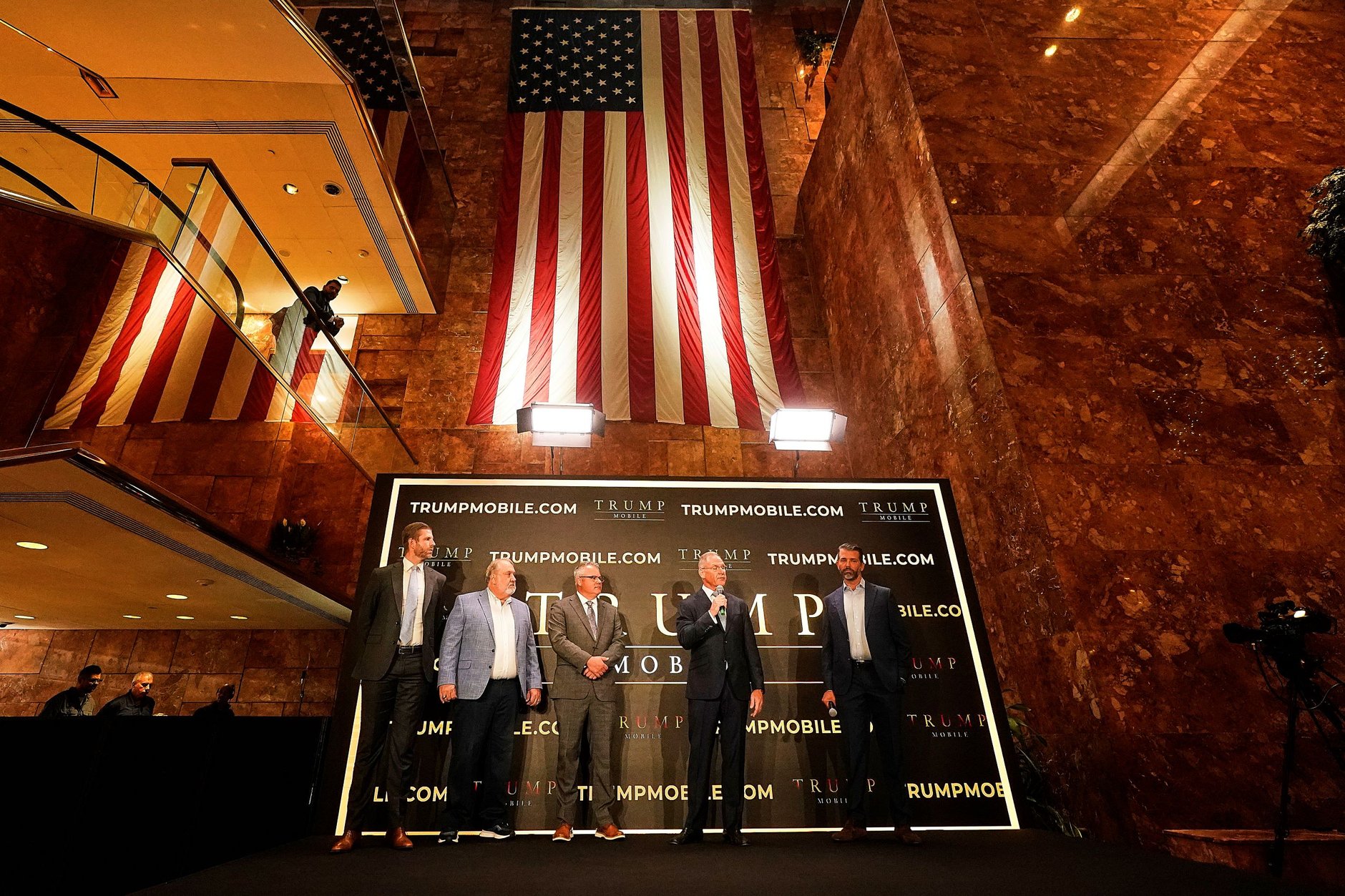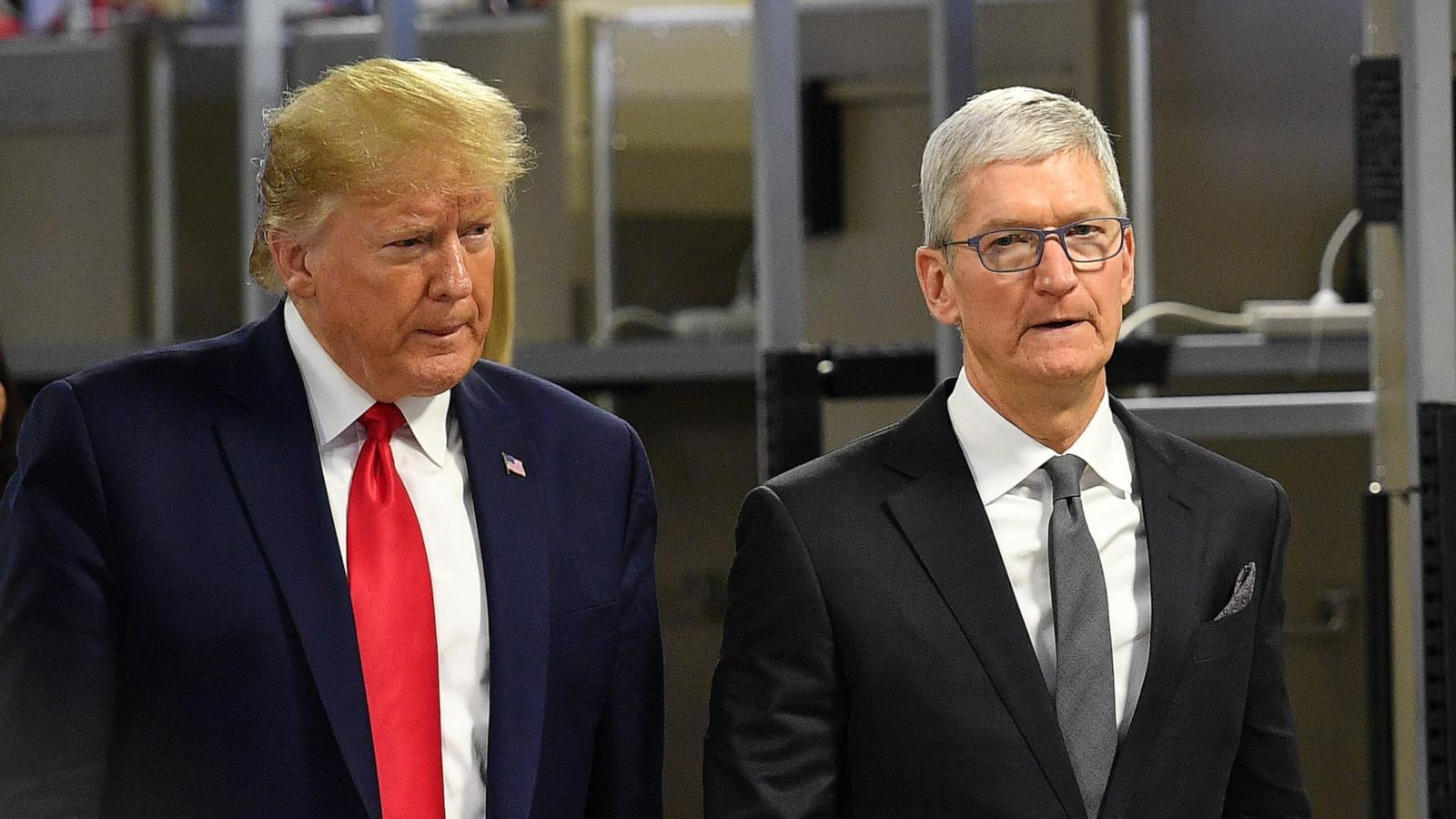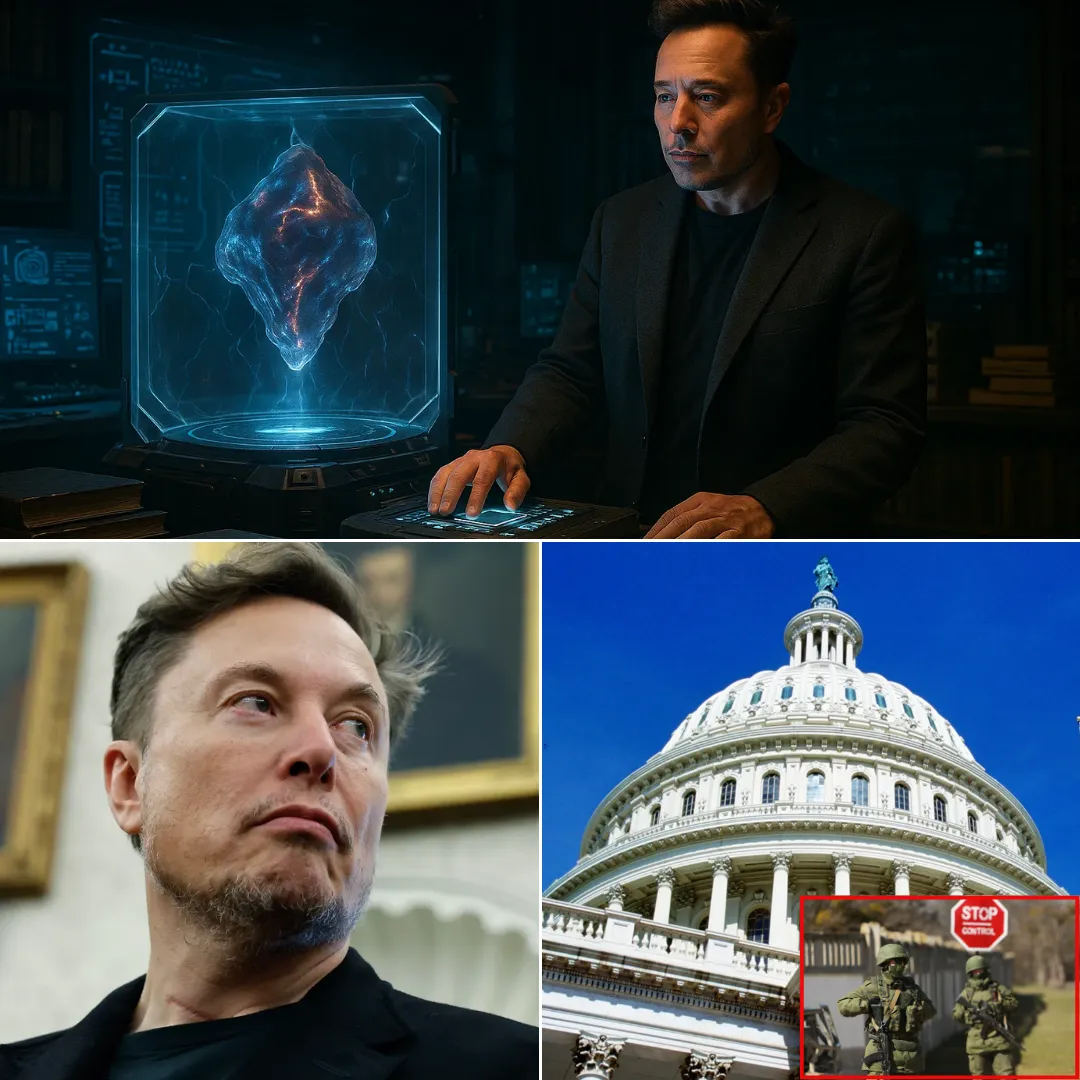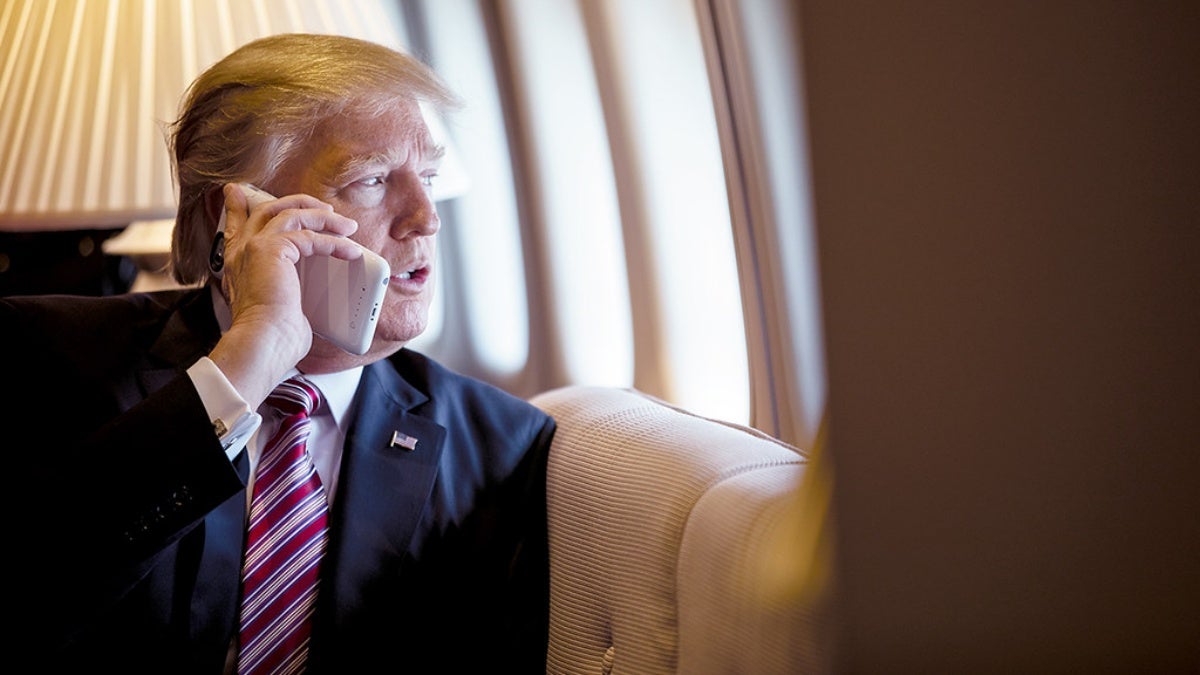
In a strategic move to capitalize on the Trump name, Donald Trump’s family business has officially launched Trump Mobile, a new mobile service, and a sleek, gold smartphone priced at $499. The announcement was made on Monday at Trump Tower in Manhattan, signaling the Trump family’s continued efforts to diversify their portfolio while capitalizing on the president's branding.
The new venture aims to target American consumers with affordable mobile services, including telemedicine, roadside assistance, and unlimited texting to over 100 countries around the world. The mobile service will be available for a monthly subscription of $47.45—a nod to Trump’s legacy as the 45th and now the 47th President of the United States.
The announcement made waves in the tech and business communities, as it marks a significant expansion of the Trump family’s business interests while the president is still in office.
Trump Mobile will operate as a mobile virtual network operator (MVNO), a business model in which companies lease network capacity from major U.S. wireless carriers—Verizon, AT&T, and T-Mobile. MVNOs have become a popular way for niche brands to enter the highly competitive mobile market, with some success stories like Mint Mobile, which was later acquired by T-Mobile for $1.35 billion.
However, experts are cautious about the profitability of such ventures. MVNOs represent only a small fraction of U.S. wireless subscriptions, and customer churn tends to be high, which poses a challenge for sustaining growth.
Michael Ashley Schulman, the chief investment officer at Running Point Capital Advisors, emphasized the high stakes for Trump Mobile: “MVNOs account for barely 3-4% of U.S. wireless subscriptions, and customer churn tends to be high. Unless Trump Mobile cracks the million-subscriber mark, the financial impact is de minimis.”
Donald Trump Jr. took the stage at the announcement, underscoring the unique selling points of the mobile service. "We are going to be introducing an entire package of products where people can come and get telemedicine on their phones for one flat monthly fee, roadside assistance, and unlimited texting to 100 countries around the world," he said, adding that this mobile service would stand out with its added value for everyday Americans.
The launch also included the introduction of the Trump Phone, a gold-colored smartphone designed to be assembled in the United States. However, the Trump family has not yet disclosed which company would manufacture the phone.
The U.S. smartphone manufacturing industry faces several obstacles, including high labor costs and reliance on overseas component sourcing, which has made domestic smartphone production largely unfeasible for most companies.
Eric Trump, during a podcast appearance on The Benny Show, stated that the initial batch of phones might not be made in the U.S., noting that "eventually, all the phones can be built in the United States of America." This admission highlights the difficulties facing the venture, as no U.S.-based company is currently capable of producing smartphones at the scale and price point Trump is aiming for.
Despite the uncertainties surrounding production and potential profits, the Trump family continues to generate substantial income from various business ventures, including licensing deals, crypto projects, and golf courses. According to the president’s recent financial disclosure, the Trump Organization reported over $600 million in income from these activities.
While the family’s businesses are nominally managed by a trust to avoid conflicts of interest, critics argue that the president’s financial interests remain closely tied to his public office, benefiting his family directly.
Lawrence Lessig, a law professor at Harvard, pointed out that President Trump’s presidency appears to be a vehicle for expanding his family's wealth. "No one who has been paying attention could miss that President Trump considers the presidency a vehicle to grow his family’s wealth. Maybe this example will help more come to see this undeniable truth," Lessig remarked.
The Trump family’s mobile venture comes amid a growing rift between President Trump and Apple’s CEO Tim Cook. During a recent tour of the Middle East, Trump made multiple jabs at Cook, who has resisted the president’s calls to move Apple’s manufacturing operations to the United States. The tech giant, which continues to rely heavily on overseas production, has made plans to diversify its manufacturing presence in countries like India and Vietnam instead.
The tensions between Trump and Cook have escalated over the years, with the president pushing for higher tariffs on goods manufactured outside the U.S. As part of his "reciprocal" tariffs on countries with which the U.S. runs a trade deficit, Trump has repeatedly urged American companies, including Apple, to bring their manufacturing back to the U.S.
In late May, he even threatened to impose a 25% tariff on all iPhones produced outside the U.S.
Trump’s frustration with Cook reached a peak when the Apple CEO declined an invitation to join the president during his trip to the Middle East. At a speech in Riyadh, Trump pointedly remarked, “Tim Cook isn’t here, but you are,” addressing Jensen Huang, CEO of Nvidia. In Qatar, he added, "I had a little problem with Tim Cook because he doesn’t want Apple building in India.”
Cook's stance against moving production to the U.S. was made clear when he continued to expand Apple’s manufacturing footprint in India, despite the president's pressure. This conflict highlights the broader debate on reshoring manufacturing, with Trump insisting on it for national and economic security while Cook focuses on global supply chain efficiency.
The U.S. smartphone industry is one of the most competitive and saturated markets globally, dominated by companies like Apple and Samsung. The idea of manufacturing smartphones in the U.S. at an affordable price point raises significant challenges, particularly when you consider the labor costs and lack of domestic production infrastructure.
Currently, only one U.S.-based company, Purism, manufactures smartphones domestically. Their Liberty phone retails for $1,999, a far cry from Trump’s $499 price tag for his phone. Todd Weaver, CEO of Purism, expressed skepticism about the viability of a $499 U.S.-made smartphone.
"If the Trump Phone is promising a $499 price tag with domestic manufacturing, this announcement looks to be classic vaporware," Weaver said, referencing the unlikelihood of such a device being produced at that price point.
As the mobile venture is still in its infancy, it remains unclear whether Trump Mobile will succeed in gaining a substantial market share in the already competitive U.S. wireless industry. Its success will depend on several factors, including customer acquisition, pricing, and the ability to differentiate itself from established brands like Verizon, AT&T, and T-Mobile.
While the Trump family is undoubtedly aiming to capitalize on the popularity of the president’s brand, the potential for financial success in the mobile industry remains uncertain. MVNOs, while appealing to niche markets, face significant hurdles in terms of customer retention and profitability.
The Trump family’s decision to enter the mobile space with Trump Mobile and a $499 smartphone will likely be scrutinized in the coming months as the public and investors assess the viability of the venture.
In conclusion, the Trump family’s new mobile service represents an ambitious effort to expand the brand’s footprint into the competitive telecommunications market, leveraging their father’s name and the promise of American-made products. Whether it will succeed or face the same fate as other Trump-branded ventures, such as Trump Steaks or Trump University, remains to be seen.
